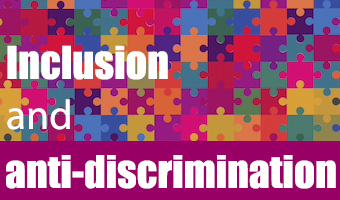Today representatives of national and European Roma and Traveller organisations, and other human rights and anti-discrimination NGO’s participated in a workshop to create human rights-based narratives to counter anti-Roma and Traveller* hate speech.
The workshop had a participatory, and learning-by-doing, approach. Using the practical online toolkit developed by the project "WE CAN for human rights speech" the participants analysed instances of hate speech, constructed human rights-based narratives and messages and will create online campaigns, supported by campaign activists and graphic designer.
The workshop
On the morning of 30 June, the workshop examined the challenge we need to address: anti-Roma and Traveller hate speech online, looking at looking at the risks it poses to human rights and dignity of the Roma and travellers, and our own personal experiences with the problem, and approaches to address it.
In the afternoon, the participants focused on the values they stand for, namely human rights, discussing which human rights can work the best in facing of hate and discriminatory speech and how we can create our own human-rights based messages in response or as an alternative.
On the final morning of 1 July, the participants will focus on putting all this into practice, and will start working on a campaign plan and work with graphic designers to help create the online messages using images, photos, cartoons, drawings etc.
The campaign will be carried out on social media until the end of the year and can be followed by the project hashtag #WECAN4HRS.
More information can be found in the background note
*The term “Roma and Travellers” is used at the Council of Europe to encompass the wide diversity of the groups covered by the work of the Council of Europe in this field: on the one hand a) Roma, Sinti/Manush, Calé, Kaale, Romanichals, Boyash/Rudari; b) Balkan Egyptians (Egyptians and Ashkali); c) Eastern groups (Dom, Lom and Abdal); and, on the other hand, groups such as Travellers, Yenish, and the populations designated under the administrative term “Gens du voyage”, as well as persons who identify themselves as Gypsies. The present is an explanatory footnote, not a definition of Roma and/or Travellers.




